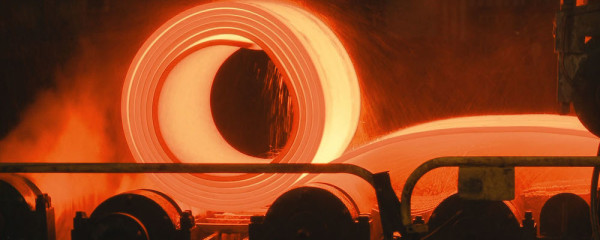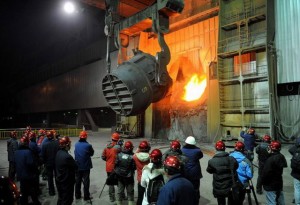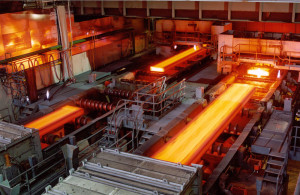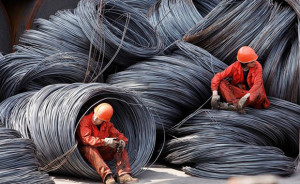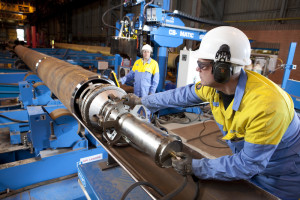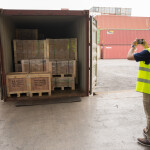27
Apr 2016
STEEL PRODUCTION RESTRICTION
China is the world’s biggest steel producer, accounting for around 822 million tonnes a year. There was a call from the US, Canada, the EU, Japan, Mexico, South Korea, Switzerland and Turkey to restraint the world’s steel production. The call was raised due to the failure of international talks to find measures to tackle the industry crisis.
Selling Steel at a Loss
In the past months, record production in China has led to criticism. Analyst saw it as a distortion for international markets because China has been selling steel at a loss. This decision is aimed to remove market-distorting policies and promote greater transparency in the global industry.
Inside one steel factory in China
Earlier this month, representatives from more than 30 countries met in Belgium to discuss about the world industrial issues. They concluded that overcapacity had to be dealt with a swift and structural way. The US pointed the finger at China. The US argued that China had to fight against its steel production overcapacity. On the other hand, China rejected suggestions that it subsidized its loss-making steel companies, and the meeting ended without any formal agreement.
Is China’s steel industry a problem?
China’s steel production
In China, the steel production has expanded tremendously. Output has grown to more than twelve-folds the size over the past 25 years. Whereas, the EU’s output fell by 12% and the US’s output remained the same.
China’s growth on its steel production is driven by its double-digit growth over the past years. But sadly, the current slowdown has hit domestic demand severely. Therefore, Chinese steel is sold at an extremely low prices on the international market ( some say it’s sold at a loss). As a result, other country’s steel plants find it very hard to compete.
For this statement, China denied it and claims that its steel is sold at a loss and says it has done what it can to curb overproduction. China was really disappointed that Beijing’s official news agency said that blaming the country for the global steel industry’s problems was a lame and lazy excuse for protectionism.
Then, what is the truth in China?
Other countries may complain that cheaper Chinese steel is forcing their producers out of business, but actually, China itself faced severe problems in the industry. The boom of past years means any substantial output cuts will lead to huge job losses, potentially leading to social instability. It’s unlikely that China will cut output by a lot and unless domestic demand picks up, cheap exports will continue to affect global markets.
Due to Chinese economy slowdown, producers have been looking for export markets and this has led to accusations of unfair competition.
Tata’s steel
Fly to India, India’s biggest conglomerate, Tata Steel, recently announced plans to sell its loss-making UK business, citing “rapidly deteriorated” trading conditions due to global oversupply. In 2015, the EU charged anti-dumping duties for six months on some steel imports from China and Taiwan. Beside steel, the EU and China have already clashed over the alleged dumping of products such as wine, solar panel and steel pipes.
“Competition is the keen cutting edge of business, always shaving away at costs – Henry Ford”

